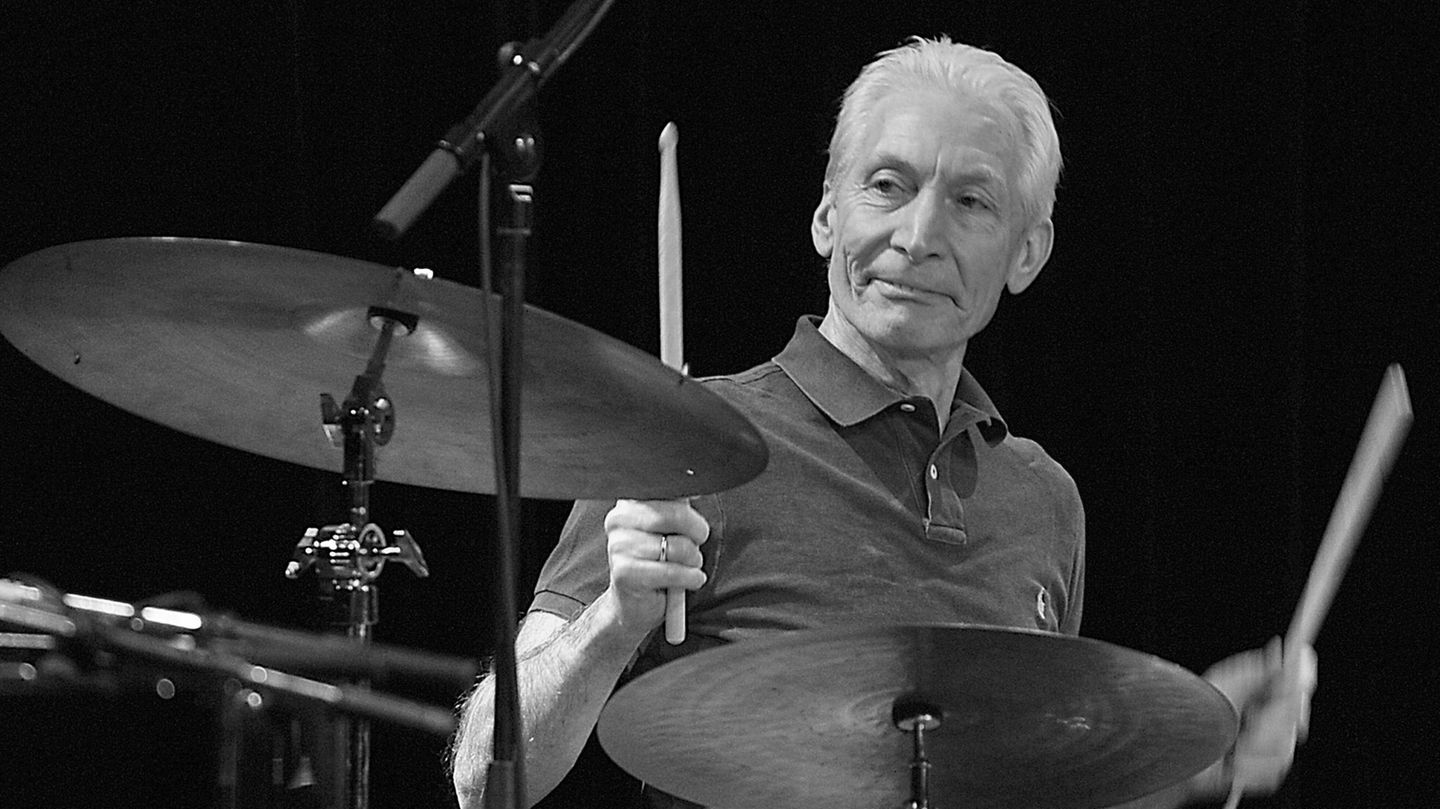obituary
For almost six decades, Charlie Watts was the pacemaker and soul of the legendary Rolling Stones. The drummer largely avoided the rock’n’roll lifestyle. Most recently, however, he was ill and was unable to attend concerts – now Watts has died in London at the age of 80.
What a difference to the wild band front people Mick Jagger and Keith Richards, also to Ron Wood, who just as likes to break the ropes: With Charlie Watts you could think that he had somehow just got lost in the rock’n’roll circus. The Rolling Stones drummer had the charisma of an English gentleman, was always dressed discreetly and elegantly, and was otherwise inconspicuous. And he had a soft spot for jazz, which he also played in bands – which made him a musical connoisseur.
The Briton died on Tuesday at the age of 80. “Charlie was a valued husband, father and grandfather and, as a member of the Rolling Stones, also one of the greatest drummers of his generation,” said a statement by his agent Bernard Doherty from the evening, to which the British news agency PA cited. Watts died peacefully with his family in a London hospital.
The news did not come as a complete surprise, however: A few weeks ago it became known that Watts should not take part in his band’s upcoming US tour. He was recovering from unspecified medical treatment, it said. The drummer had been a member of the Stones for almost 60 years – he joined the band six months after the band’s first appearance in London’s legendary Marquee Club on July 12, 1962.
Bandmate: “Charlie is our engine”
Born on June 2, 1941 as Charles Robert Watts in North London, the musician discovered his love for jazz and blues at an early age. His first drum kit emerged from an old banjo – if you will, the beginning of a decade-long career and global success with one of today’s oldest active rock bands. In contrast to singer Jagger and guitarist Richards, the drummer avoided the limelight and mostly also the excesses. And he welded the band together when the front men fell out.
In the 1980s, however, Watts drank too much and took drugs himself. In 2004, the once heavy smoker survived cancer of the larynx. In his private life, he was always considered solid: even in wilder times, he is said to have stayed away from the many groupies who swarmed the band. And since 1964 Watts had been married to the same woman – the artist Shirley Watts, with whom he had a grown daughter.
Actually, the Rolling Stones should have played stadium concerts in the USA and Canada last summer. “We’ll see you very soon,” said the band. Now we will see how the band can go on without their backbone. “Charlie is our engine,” said his friend Ron Wood once. “And we’re not going anywhere without our engine.”
Watts: “Stones just another band for me”
“I thought the band was going to quit a couple of times. I used to think that after every tour,” Watts joked in an interview with the New Musical Express before the No Filter tour stopped in the UK three years ago. “I’ve had enough of it, that’s it.” He made no secret of the fact that he could never stand the rigors of long tours.
“Originally the Stones were just another band for me,” Watts once told the “Süddeutsche Zeitung”. “I assumed that it would all be over after two years at the latest.” The starting point was a call from Alexis Korner: The influential blues musician had become aware of the talented drummer and was able to convince him to join his band Blues Incorporated, which also included the later Stones founders Jagger and Brian Jones at times.
After joining Blues Incorporated, Watts initially continued to work full-time as a designer. His training as a graphic artist was also very useful to the musician later on. Watts designed artwork for Stones albums and helped design the gigantic concert stages.
In addition to Jagger and Keith Richards, Watts is the only band member to be heard on all of the Rolling Stones’ studio albums. Musically, he was mostly limited to his drums – he wrote practically no songs. Nevertheless, he became a legend of coolness and style awareness – which not many drummers have succeeded in doing. The rock world will miss him very much.
I am a 24-year-old writer and journalist who has been working in the news industry for the past two years. I write primarily about market news, so if you’re looking for insights into what’s going on in the stock market or economic indicators, you’ve come to the right place. I also dabble in writing articles on lifestyle trends and pop culture news.




